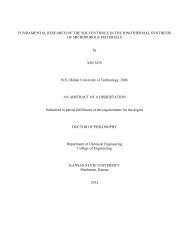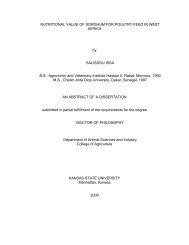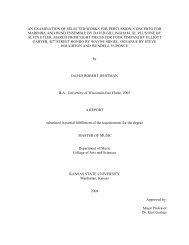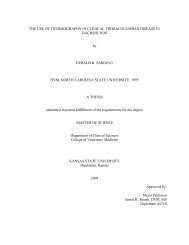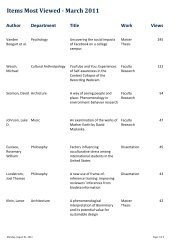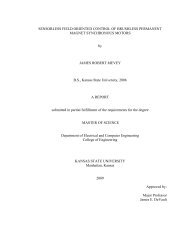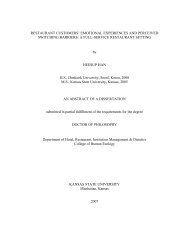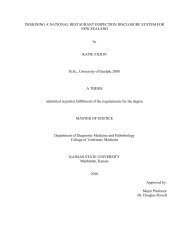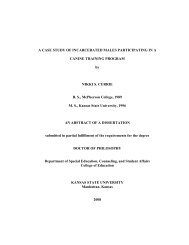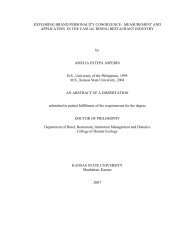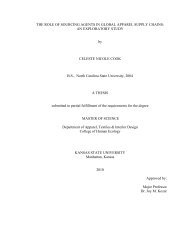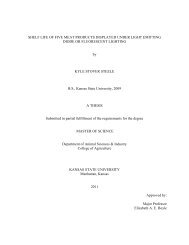SELFISH INTENTIONS - K-REx - Kansas State University
SELFISH INTENTIONS - K-REx - Kansas State University
SELFISH INTENTIONS - K-REx - Kansas State University
You also want an ePaper? Increase the reach of your titles
YUMPU automatically turns print PDFs into web optimized ePapers that Google loves.
would come to <strong>Kansas</strong> for the sole reason of a quick divorce; in effect, this statute would in his<br />
view increase <strong>Kansas</strong>’ divorce rates, lower the state’s moral standard, and increase fraud.<br />
Professor Higgins, who was commissioned to review the statute, responded to Judge<br />
Higgins’s claim by explaining the statute change was not intended for this type of “shotgun”<br />
divorce. Professor Higgins contended, “It was of the opinion of the committee that a non-<br />
resident plaintiff in an action for divorce should be allowed to sue a resident defendant… It<br />
therefore happens that all of the suggested changes were not adopted and that this intention was<br />
not so clearly expressed as it would have been. However, I think the statute does reveal an<br />
intention to permit a non-resident plaintiff to sue wherever the defendant resides or may be<br />
summoned.” 101 Even though the commission did not intend for a loophole to occur, the wording<br />
of the new statute allowed non-residents to petition for divorce in <strong>Kansas</strong>.<br />
Even though state divorce records were unavailable for these years, a preliminary<br />
examination of local data from Riley County showed a significant increase in divorces following<br />
the 1909 change in the statute. Before the statute was changed, the Riley County records showed<br />
the courts granted twenty-six divorces in 1908. Then in 1909, the number of divorces increased<br />
to thirty-two. The year 1910 saw divorces decrease to twenty-seven, but in the next two years,<br />
divorces significantly increased to thirty-eight in 1911 and 1912. 102 Although the statute<br />
loophole is unlikely to be the only cause, if one examined county court records from counties on<br />
the <strong>Kansas</strong> border, one would expect to find a significant increase in divorces in these areas due<br />
to out-of-state couples using the loophole in the 1909 statute to their advantage.<br />
During the 1912 Methodist Episcopal Church <strong>Kansas</strong> conference, the church found the<br />
recent increase in divorces across the state alarming. Through this conference the church called<br />
101 Ibid.<br />
102 Riley County Divorce Records 1908-1912. Riley County Genealogical Society.<br />
41



